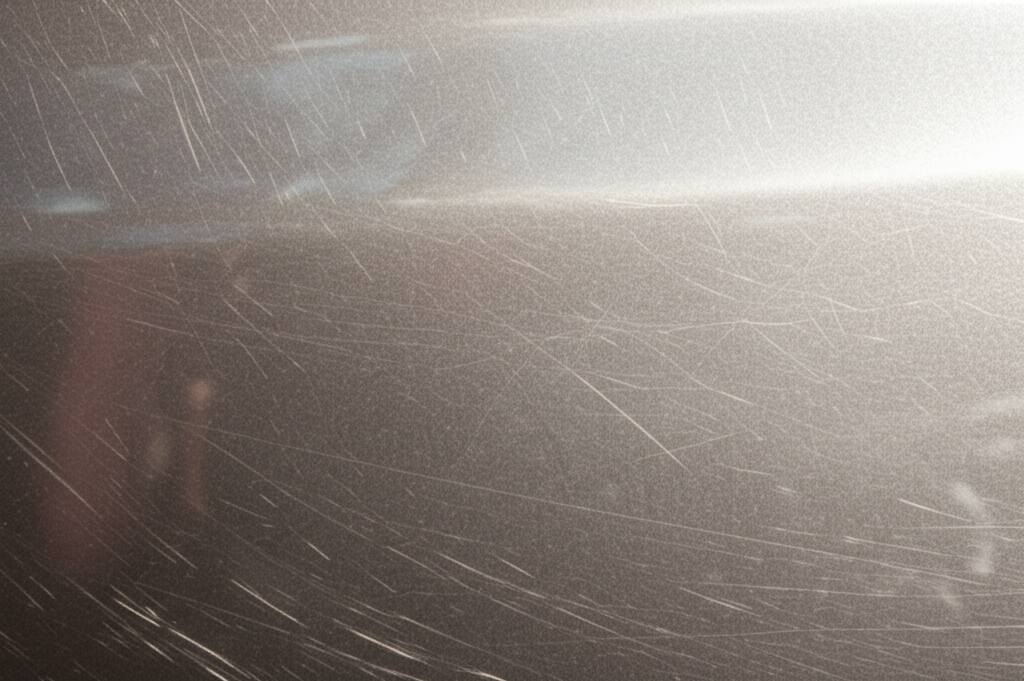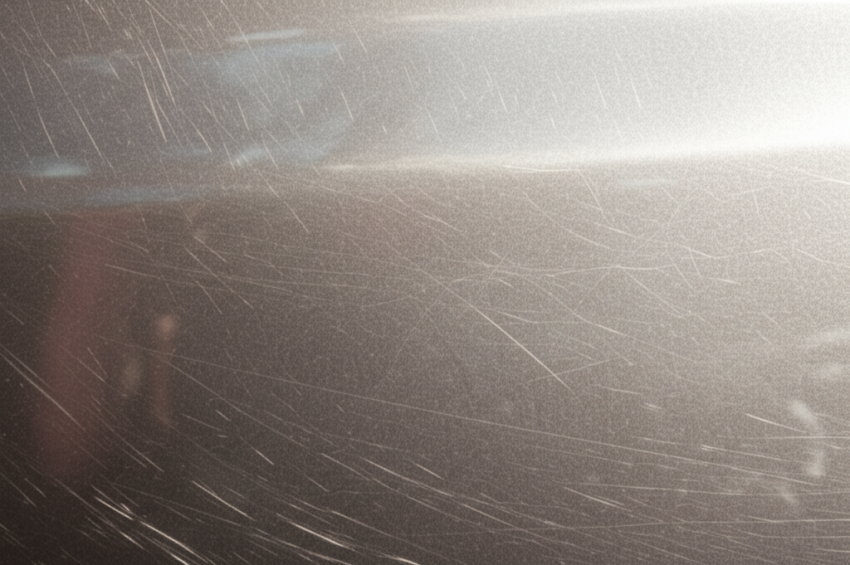Owning a car in Thailand is a source of pride, a symbol of freedom, and often, a significant investment. You meticulously maintain it, enjoy the admiring glances it gets, and rely on it daily. But the reality of driving here – the intense tropical sun, unpredictable road debris, tight parking spaces, and bustling traffic – constantly threatens its pristine appearance. Have you ever felt that pang of frustration seeing a new scratch appear seemingly out of nowhere? Or worried about the relentless sun fading your car’s vibrant colour? You want to protect your investment and keep it looking showroom-fresh, but how do you choose the right protection that doesn’t compromise on aesthetics and truly withstands the Thai environment?

Many car owners face this dilemma. Standard cosmetic films might offer a temporary colour change or basic shine, but they often fall short when it comes to genuine, long-lasting protection. This is where understanding the difference between common films and advanced options like Thermoplastic Polyurethane (TPU) film becomes crucial for discerning owners like yourself.
Meet Khun Somchai: From Daily Worries to Driving Confidence
Khun Somchai, a marketing executive in Bangkok, recently purchased his dream sedan. He loved its deep metallic blue paint but quickly grew anxious about navigating the city’s challenges. “Every commute felt like a gamble,” he recalls. “Between rogue motorcycle mirrors, gravel kicked up on the expressway, and the harsh afternoon sun when parked outside, I was constantly worried about damaging the paint. I considered a basic vinyl wrap, mostly for looks, but a friend warned me it wouldn’t offer much real protection against scratches or impacts.”

After researching, Somchai discovered Paint Protection Film (PPF), specifically high-quality TPU films. He visited a reputable installer who explained the technology – its self-healing properties, superior UV resistance, and remarkable durability against physical impacts. Though the initial cost was higher than standard vinyl, Somchai saw it as an investment in preserving his car’s value and his own peace of mind. He opted for a full front-end wrap (bonnet, bumper, fenders, mirrors) with premium TPU film. “The installation process was meticulous,” Somchai notes, “The team was incredibly professional.” The transformation wasn’t just physical; it was emotional. “Now, driving feels different. I’m less stressed about minor hazards. The car looks fantastic – the film is virtually invisible, just enhancing the gloss – but knowing that layer of protection is there makes all the difference. Small scratches from washing or light scuffs seem to vanish, especially after the car’s been in the sun. It’s incredible.”
TPU vs. Regular Film: Unpacking the Key Differences
When discussing “regular film” in the context of protection, we often mean films primarily made from PVC (Polyvinyl Chloride) or basic vinyl materials. While these can offer some level of cosmetic enhancement or very minimal defense, they fundamentally differ from TPU in structure, performance, and longevity, especially under demanding conditions like those found in Thailand.
Let’s break down the comparison:
| Feature | TPU (Thermoplastic Polyurethane) Film | Regular (PVC/Vinyl) Film |
|---|---|---|
| Primary Material | Advanced polymer (TPU) known for flexibility, elasticity, and strength. | Plasticized Polyvinyl Chloride (PVC) or Calendared/Cast Vinyl. Generally more rigid. |
| Scratch & Impact Protection | Excellent. High resistance to scratches, stone chips, minor impacts due to its elasticity and energy absorption. Often features a self-healing top coat. | Limited to Poor. Offers minimal protection against anything beyond the lightest scuffs. Can be brittle and may puncture or tear easily. |
| Self-Healing Properties | Common feature in quality TPU films. Minor scratches and swirl marks disappear with heat (sunlight, warm water, heat gun). | Generally No. Scratches remain permanent damage on the film. |
| UV & Environmental Resistance | Very High. Contains UV inhibitors to prevent yellowing, cracking, or degradation from sun exposure. Resists chemical stains (bird droppings, bug splatter, acid rain). | Moderate to Low. Prone to yellowing, fading, cracking, and becoming brittle over time, especially under intense UV exposure like in Thailand. Less resistant to chemical etching. |
| Durability & Lifespan | Long. Typically lasts 5-10 years or even longer with proper care, maintaining clarity and protective qualities. | Short to Medium. Usually lasts 1-3 years (sometimes up to 5 for higher-end vinyls) before significant degradation occurs. |
| Clarity & Finish | Excellent optical clarity, often enhancing the paint’s gloss. Maintains appearance over time. Available in gloss, matte, and coloured variants. | Can look good initially, but clarity may diminish. Prone to developing an “orange peel” texture. Risk of yellowing affects appearance significantly. |
| Flexibility & Conformability | Highly flexible, conforms well to complex curves without excessive stress or need for seams. | Less flexible. Can be difficult to apply smoothly on complex curves, potentially requiring more seams or relief cuts. |
| Installation & Removal | Requires skilled professional installation. High-quality TPU with proper adhesive generally removes cleanly without damaging OEM paint when done correctly. | Installation difficulty varies. Cheaper PVC films can leave significant adhesive residue or even lift paint upon removal, especially after prolonged sun exposure. |
| Cost | Higher initial investment. | Lower initial cost. |
| Long-Term Value | Excellent. Protects original paint, preserves resale value, reduces need for paint correction, offers lasting aesthetics and peace of mind. Cost-effective over its lifespan. | Poor. Offers minimal long-term protection value. May need frequent replacement. Potential removal issues can lead to added costs. |
| Best Suited For | Car owners prioritizing long-term paint protection, scratch resistance, maintaining resale value, and premium aesthetics. Ideal for new or well-maintained vehicles in harsh environments. | Short-term cosmetic changes, temporary promotional wraps, or owners on a very tight budget not primarily focused on protection. |

The table clearly illustrates why TPU stands out for protection-focused owners. Its inherent material properties provide a robust shield against common damages that PVC/vinyl simply cannot match. The self-healing technology is a game-changer, keeping the film (and the paint beneath) looking flawless for longer. While the upfront cost is higher, the extended lifespan, superior protection, and preservation of your car’s original paint make TPU a far better long-term investment.
Voices from the Road: Thai Owners Share Their TPU Experience
The benefits of TPU film aren’t just theoretical. Car owners across Thailand are experiencing the difference firsthand:
“My condo parking is notoriously tight. Before TPU, I dreaded finding new door dings or bumper scuffs. Since getting a full TPU wrap, that anxiety is gone. I know the paint is safe from those minor bumps and scrapes. It’s brought back the joy of owning my car without the constant worry.”
“I drive frequently between provinces, facing all sorts of road conditions. Stone chips were my biggest enemy. After installing TPU film on the front end two years ago, the paint underneath is still perfect. The film has taken a few hits, but it hasn’t torn, and the self-healing means light marks just disappear. It looks almost as good as day one, no yellowing despite the strong sun.”

“I chose a matte TPU film for a unique look, but the protection was my main goal. Living near the coast, bird droppings and salty air were a concern. The TPU makes cleaning so much easier – droppings wipe right off without etching the film or paint. And the matte finish still looks deep and even after a year. Worth every Baht for the protection and the style.”
These testimonials highlight the recurring themes: reduced anxiety, tangible protection against everyday hazards, long-lasting aesthetic appeal, and overall satisfaction that justifies the investment.
Ready to Shield Your Ride with the Best?
Your car deserves protection that performs as beautifully as it looks. If you’re tired of worrying about scratches, stone chips, and the damaging effects of the Thai sun, it’s time to consider the superior defence of TPU Paint Protection Film. Don’t settle for temporary fixes or films that offer inadequate protection. Invest in quality, durability, and peace of mind.
Want to learn more about how TPU film can specifically benefit your vehicle model and driving habits in Thailand? Curious about coverage options and pricing? Our team of experts is here to help.
Contact us today for a free consultation and personalized quote!
📱 Want to learn more about car wrap & paint protection?
Feel free to reach us on LINE:

🌐 Official Website: https://tpuwraps.com
Frequently Asked Questions (FAQ)
- Q: Is TPU film really worth the higher price compared to vinyl wraps?
- A: Absolutely, if long-term protection is your goal. While the initial cost is higher, TPU film offers significantly better protection against scratches, impacts, and UV damage. Its self-healing properties and much longer lifespan (5-10+ years vs. 1-3 years for most vinyls) mean you avoid costly paint repairs and potential replacement costs of cheaper films. It preserves your car’s resale value, making it a smart financial investment over time.
- Q: How long does TPU film realistically last in Thailand’s hot and humid climate?
- A: High-quality TPU films are specifically designed with UV inhibitors and stable chemistry to withstand harsh climates. With proper care (regular washing, avoiding abrasive chemicals), you can expect premium TPU film to last anywhere from 5 to 10 years, sometimes longer, without significant yellowing, cracking, or peeling. Cheaper films, especially PVC, degrade much faster under intense Thai sun.
- Q: Will installing or removing TPU film damage my car’s original paint?
- A: When installed and removed correctly by trained professionals using high-quality film, TPU PPF will *not* damage your car’s factory paint. In fact, it protects it. The adhesives used are designed to be strong yet removable without lifting clear coat or paint. Problems usually only arise from low-quality films, improper installation techniques, or trying to remove old, degraded film incorrectly.
- Q: Does TPU film turn yellow over time?
- A: Modern, high-quality TPU films incorporate advanced UV inhibitors specifically to combat yellowing caused by sun exposure. While very old or extremely low-quality TPU might eventually show some change, reputable brands offer excellent resistance and clarity that lasts for years, unlike older technologies or PVC films which are much more prone to yellowing.
- Q: Can I install TPU film myself?
- A: While DIY kits exist, professional installation is strongly recommended for TPU film. Achieving a flawless, bubble-free, and properly aligned finish, especially on curved panels, requires specific tools, techniques, and experience. Professional installation ensures the film performs optimally, looks perfect, and maximizes its lifespan. It’s an investment in getting the job done right.
Invest in Protection, Drive with Confidence
Choosing the right protection for your car in Thailand is about more than just aesthetics; it’s about preserving your investment and enjoying your drive without constant worry. While standard films might offer a superficial change, TPU film provides a robust, technologically advanced shield against the elements and everyday hazards. It delivers superior scratch resistance, self-healing capabilities, long-lasting clarity, and vital UV protection – all while maintaining or even enhancing your car’s beauty.

Don’t let the harsh sun, road debris, or tight parking spots diminish the pride you have in your vehicle. Make the smart choice for long-term protection and enduring style. Explore the benefits of TPU film today and give your car the defence it truly deserves.
